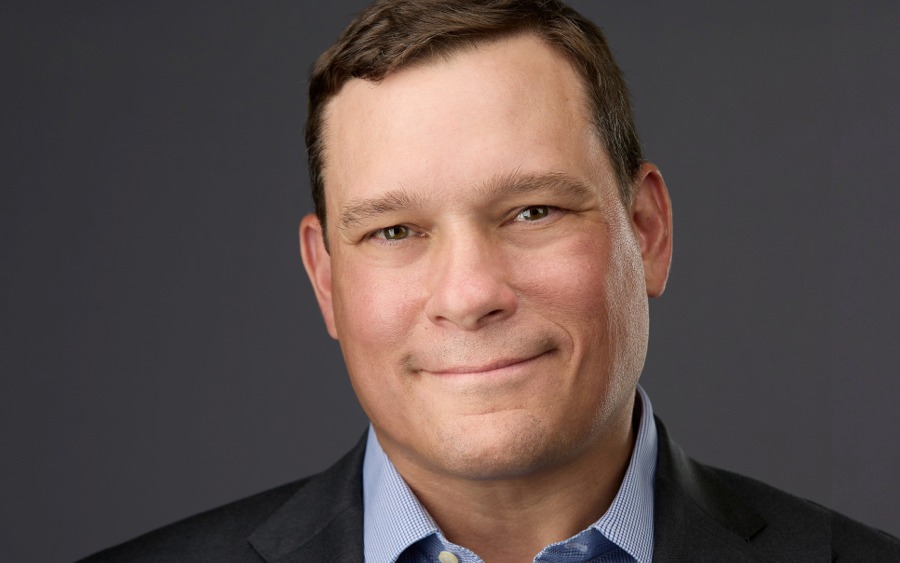Chris Brezski, the highly active and vocal Chair of the Newton School Committee, has announced that he will not run for re-election this November and will leave the Committee at year-end. In his relatively brief, two-year tenure as the Committee Chair, he oversaw momentous events such as the implementation of Superintendent Anna Nolin’s initial goals, the teachers strike, the cell-phone ban, and the recent advocacy for the NPS budget. Mr. Brezski joined the Committee as the Ward 2 representative in January 2022 and was elected Chair effective January 2024. He recently discussed his time on the Committee and views on NPS with Fig City News. This interview has been edited for clarity and length.
FCN: Why did you decide to become politically active in NPS?
Mr. Brezski: In August 2020, David Fleishman announced there would be no in-person learning for the coming school year. I didn’t consider two mornings per week, the “hybrid” model, to mean in-person. It was so obvious even at that point how much damage was being done to our kids. Spring 2020 wasn’t a great environment for kids either, I had a Kindergarten and 2nd grader then, but there was a global pandemic and people thought that schools would re-open in the fall.
My first real action as an advocate was organizing a petition in October 2020 for the School Committee to vote down the Memorandum Of Agreement (MOA) with the Newton Teachers Association (NTA) that codified [the requirement for] 6 feet of distance and gave the union a veto right on changing that. By that point, we had access to Covid testing, masks, and other mitigations, but NPS couldn’t create new space. I remember drawing schematics of classrooms with NPS administrators and going through things like how you could rearrange desks; the requirement for 6 feet of distance was the real barrier to schools re-opening.
I observed officials making very discrete medical and scientific decisions with absolutely no basis for them. They had no training in these areas. This was happening in a city where national health care policy is made by some of our residents, and NPS wasn’t asking for help. So with the aid of a few local physicians, we organized a letter that was ultimately signed by over 250 resident physicians saying that our kids need to be back in school, we’re doing more harm than good, and three feet of distancing and masking would be sufficient. Ultimately, I give a lot of credit to [City Councilor] Josh Krintzman, who at that time ran the Council’s Programs & Services Committee. He allowed Dr. Julie Winsett, an infectious disease physician, and Joe Allen, who runs the Healthy Buildings program at the Harvard School of Public Health, to explain how school openings could be done safely. That broke the logjam.
Why did this take so much effort? What were the barriers to an action that may sound obvious in hindsight?
I don’t have a clear answer. The School Committee, the Superintendent at that time, the City’s Health and Human Services, the Mayor’s office all had different responses to these questions, and everyone would essentially say their power was limited, pointing to the 6 feet [requirement].
Ultimately, along with a great group of elementary parents, I put forward a petition, which under the City Charter would require a public hearing, to the School Committee detailing exactly how a Medical Advisory Committee to NPS should be structured. Eleven days later, David Fleishman announced a committee to facilitate re-opening of schools. Several people who worked on that petition also worked with DESE on statewide re-opening, so our advocacy really made a difference.
FCN: Once students had returned to school in 2021, what made you run for School Committee?
This advocacy had become my second life, spending an inordinate amount of time on the issue of re-opening schools. I realized I was doing it from the outside, and could be more effective inside. I saw something that was broken, and wanted to put forth some solutions. I didn’t have much in my head at that time other than remediating the effects of Covid, but we started to realize more things that needed to be fixed than we knew at the outset.
FCN: What else needed to be fixed?
The budget, first and foremost, was an easy thing to cite. Many issues we’re having, the consternation and disagreements, trace back to the budget. If you can solve that, you solve a lot of problems. During the pandemic, and the societal pendulum swinging, NPS did take its eye off the ball of its basic core mission that schools exist to educate children. There was some work to be done to restore that.
FCN: Someone may hear you say that if you fix the budget you fix a lot of problems, and think that’s just another municipal department asking for more money, like every school district and city department in the country says it needs more money. How is what you’re saying any different?
I too might have said that before I had two kids staying at home during Covid. We’re constantly trying to impress upon folks just how different it is today. I don’t say that lightly, I truly believe it’s different. It’s not just a function of the pandemic, it was slowly creeping up on us, the ubiquitous social media and phones being a big part of it. Like a lot of things, these creeping changes got put on steroids during the pandemic. A kid today is different than a kid 10 years ago, and it takes skilled people to manage through that on a day-to-day basis.
We get asked all the time why is staffing remaining level if student enrollment is down? [The number of] classroom teachers has generally declined with enrollment, but they have been backfilled by increases in specialists and aides who help these kids get through their days.
I don’t know that the Department of Public Works has changed post-pandemic to the degree NPS has. Potholes aren’t more severe due to the pandemic, but student needs are more complex. We’re at a big inflection point now. With our new Superintendent there’s a different level of professional management in the district. There’s a vision put forward of what NPS can do, and how we can better serve our kids, that I haven’t previously heard in my time as an NPS parent. That’s a different proposition to put forth to people.
We’ve talked a lot about installing this system of multi-tiered systems of supports (MTSS), and have shown, in the one school we’ve had it in place, that we’ve reduced the number of professionals we need in our building, with the same or better outcomes. That’s a positive return on investment, but you need to make that investment.
FCN: A theme across both your Covid and budget advocacy is working with different City entities with limited authority. How does one lead in this environment?
[City Councilor] Becky Grossman said in a Council meeting that every person who runs for any elected office starts off by saying schools are my number one priority. And yet every single year we find ourselves in a situation where we’re scrambling to find a way to fund our schools. So something’s not connected. We have a city charter that might just give too much authority to one person. In terms of leadership, you have to have a willingness to [tick] people off to do what’s right. And I think I’ve accomplished that.Going back to your question of why did I get active in NPS, it appeared to me there were decisions being made not in the best interests of kids. During the strike I was still the villain of the union, during the current budget spat we’ve had, I was being praised. In both cases, I was just acting in the best interest of our kids. So none of the other parts of it really matter.
FCN: Nobody says they’re not acting in the best interest of kids.
What risks are you taking? It’s one thing to just take the choices offered to you, another to say I’ll try to find solutions to problems, and maybe ruffle some feathers in doing that. The distinction is the magnitude of what you’re willing to do to get there.
FCN: In your four years on the Committee, you’ve had three different superintendents. What have been their differences?
Having clear vision matters so much. All these things NPS is doing now: Portrait of a Learner, Strategic Planning Committee, they may feel soft and squishy but really important. These processes cut through the BS and ask what do we want our kids to have when they leave NPS? They allow you to evaluate simply: Are our kids achieving those skill sets or not? It takes away a lot of culture-war issues because you have a goal of what our kids should receive.
FCN: With the benefit of hindsight, how do you prevent another teacher’s strike? Just by virtue of it having happened, it’s no longer unthinkable or unknowable, which makes it more likely to happen again.
It feels like years ago. I’ll address the second part first. I would disagree with that premise, because while, yes, it’s no longer an unknowable, it’s knowable but horrible. I said at the time the strike didn’t benefit anyone, there were no winners in this, there were only losers. Our kids being the biggest losers. I hope everyone else has learned that same lesson. The inability to get to a contract agreement was a joint failure of everyone involved: the School Committee, the Mayor, the union, everyone. I don’t think the strike accomplished anything.
As far as avoiding another one, I’ll give Dr. Nolin a lot of credit for starting a ton of work with the union immediately in the strike’s aftermath, when it was uncomfortable to do so. I think we have a better level of communication with the union, and it helps that they see the School Committee fighting for our budget.
FCN: Newton Teachers Association president Mike Zilles has said the strike was a result of years of accumulated failures. You just included the School Committee as part of the joint failure. What could the Committee have done differently?
I can’t speak to many years ago, but going back to the pandemic, even before I was on the Committee, it felt like everything was desperate. Being a teacher became harder. Students had more complex needs and learning gaps. We had levels of inflation we haven’t seen in decades. It was a chaotic, stressful situation. The statewide teachers association had an agenda of wanting to legalize teachers strikes. There were a lot of forces at play, resulting in this perfect storm. The School Committee was in a tough spot of not being able to deliver the union’s demands without decimating our staff and harming our kids. I wasn’t part of the pre-strike negotiating team nor at the table until very late in the game, when I became Chair just before the strike. The first thing I did as Chair was work with the Mayor on establishing the Education Stabilization Fund, and use it in a meaningful way immediately. That’s what allowed us to put forth the proposal that became the first three years of the contract.
FCN: It seems like the theme of your comments is the Committee advocating, rebuilding trust, and avoiding escalation?
Part of that is communication, and not injecting nor inferring motives in communications. I developed the rule of no adjectives in our communications. Be as factual as you can be, take all emotion out of it, and work towards solutions.
FCN: What qualities are important for School Committee members to be effective?
You want folks without any kind of hard ideology, who are truly acting in the best interest of kids. It sounds simple and silly, but all kinds of people run for School Committee. Some may see it as a stepping stone to a political career, some seek a sense of control. It’s a really easy job in some respects if you just act in the best interests of kids, find solutions, and figure stuff out. People who can convince you of that, and that they don’t have any other agenda, are the folks you should pay attention to.
FCN: The School Committee is elected by every citizen, not all of whom have kids in NPS. What about a voter who says I want a school committee member who’s a good steward of my taxes, and understands NPS must operate in the best interests of the City as a whole?
We can’t simply say we want more-more-more all the time, because ultimately that will end up not being in the best interest of kids when you face massive cuts in some future day. That’s why, like in this budget season, I spent a lot of time talking about things like pensions and fixing the big structural deficit problem that everyone seems to agree exists. I can’t argue for more money now if that’s just going to be a road to nowhere, you’ve got to have an endgame. Seeing our students have what they need and schools are performing is priority number one, but you still have a fiduciary duty to the citizens to use their tax dollars in the most efficient way possible, so it’s not a game of just more for the sake of more.
FCN: Shortly before this interview, you shared that you were not going to run for re-election. Why not?
When I started this, I thought that whatever I can’t accomplish in four years, I probably can’t accomplish in eight years. The role is a lot. I have a tendency to do things only at full speed, and my four years plus my prior advocacy has been all-consuming. It’s just taken away from every other aspect of my life. I think the district is in great hands with Dr. Nolin. There’s some really strong people who are likely to be School Committee members next year, and I feel confident that the institution can keep this momentum going.
FCN: What are some lessons learned? Anything you would have done differently in hindsight?
My biggest regret is when I first joined the Committee after the pandemic, we were never able to figure out in its immediate aftermath some sort of remediation plan to really help kids who were falling behind. It was discussed; we had an interim superintendent who did a phenomenal job given circumstances; and it was difficult to construct something that was feasible. If we had been able to stand something up, I think maybe things could be better now.
One lesson learned is about the city itself. I’d previously thought of Newton as monolithically progressive, but I now think the political center-of-gravity is more center/left. In terms of schools, there was a lot to get done. When I joined the Committee, the tasks were ending Covid surveillance testing and getting kids out of masks. Today it’s the basic blocking and tackling of common curriculum and assessments, and running a district of 11,000 students. It’s a big leap from one to the other. So a lesson was uncovering how much atrophy the pandemic had introduced.
I’ve been surprised that there are people in city government who believe their job is to make policy behind closed doors and go sell it, as opposed to letting the debate happen, letting adults disagree, and come to best outcomes. One lesson I tell people thinking of running for office is the easiest way to do this job is to say the same thing to everyone all the time. Admit what you don’t know and when you’re wrong. People are really seeking out an honest assessment of where we are and where we’re going, and are surprisingly refreshed when they hear that.
FCN: How has the School Committee changed since 2020?
The School Committee has taken a different view of its governance role. I would argue that at points in the past the Committee saw itself as a defender of the system, seeking to justify whatever was happening. I think the Committee now has more of a true Board-like view of what its job is, and takes a more critical eye to the system than perhaps it used to.
FCN: The community often hears the Board of Directors analogy about the School Committee. Can you elaborate on that, does it mean you’re in charge of NPS?
We have very defined statutory duties under Massachusetts General Law. For instance, one of those duties is not curriculum: You don’t want an investment manager, a consultant, and a lawyer in charge of that because it’s such a nuanced thing. It is our job to hold NPS accountable, which in large part means holding the Superintendent accountable as our CEO. We have to put a process in place and put forth a vision. We do that within our defined duties of allocating the district’s budget, including things like facilities.
FCN: If the Committee’s duties are so limited, NPS could hire a consultant to draft the district goals and budget with common best practices, and School Committee members wouldn’t need to do anything but advocate for more money and check boxes on goals.
That’s not accountability, that sounds to me like what I was talking about earlier, of just being a cheerleader and defender of the system.
FCN: Then what does a School Committee member do that’s different from that?
I’ll give you a good example. We don’t have authority over curriculum, but we do have authority over the budget to fund curriculum. A couple years ago, NPS was looking to implement a new reading curriculum, and this was when the podcast Sold A Story came out, and parents were very engaged on this topic. The reading curriculum we had been using was not adhering to the science of reading. Some School Committee members indicated they may withhold funding if we didn’t move reading towards that, which was also what [the state] DESE was recommending. So there’s some nuance.
FCN: MGL does say the School Committee is responsible for setting the educational goals of the district. That sounds like you’re in charge of what the kids are learning, so what’s the nuance?
One is process driven, one is results driven. Educators like Dr. Nolin and the assistant superintendents should develop the process for achieving the district’s goals. The School Committee sets the goals, we’re the voice of parents and voters, but you don’t want us creating the process.
FCN: What do you hope to accomplish in your last seven months on the Committee?
Dr. Nolin and I were just discussing this. Families and staff are buying into this vision that’s being put forward, and we have a more engaged community and City Council. It feels like night and day compared to the depths of the strike last year. I don’t want to front-run the Superintendent on near-term goals. Everyone’s cognizant that there will be huge turnover on the Committee next year, along with a new mayor, so we have this finite period in front of us to accomplish certain things.
One of the more meaningful things we’ve accomplished with the NPS staff is implementing the cell phone policy, that doesn’t get discussed as much as the budget or curriculum, but I’m very proud of that work, and refining it will be a goal over the coming months.
FCN: You’ve already spoken extensively about the budget. What other pressing issues will the next School Committee have to manage?
It’s really going to come down to “Can we fulfill this vision that’s been laid out?” We have a clear path of where we’re heading. We’re going to have to negotiate a new teachers contract in a couple of years. Educationally, we have to continue this shift of getting back to basics. One question I’m a little upset we haven’t figured out, is our footprint of elementary schools. Once the four new school buildings come online, two-thirds of elementary students will go to new, modern school buildings, and one-third won’t. That’s going to feel a lot different than when it was only Angier-Cabot-Zervas in new buildings and everyone else was in old buildings, and will be a tricky issue for a couple of decades. We tried to unlock that as a Committee, but we didn’t really get anywhere last fall.
FCN: The district’s motto has changed from “Equity and Excellence” to” Where All Students Thrive.” Why have many in the community perceived a struggle between Equity versus Excellence?
I’m glad the motto changed. Excellence is individualized. Equity exists in a group. That’s part of the friction, if a student is not given the opportunity to achieve what they can, in the service of a different student’s achievement. You can have equity without excellence, but you can’t have excellence institutionally without some form of equity. You can have both. They do conflict on the margins at some point, and the challenge is that many discussions about them tend to conflate the individual with the institution.
FCN: There are statutory requirements for many of the equity goals of NPS. There’s no requirement for excellence. How does a school system avoid inertia and stay excellent?
We have to achieve sustainability, both fiscal AND educational sustainability, within the high expectations of Newton’s citizens. We have to be able to provide the services that families expect and deserve, or we’ll lose them; it’s as simple as that. You can’t fall into a trap of lowest-common-denominator thinking as this is what equity looks like.
And if you’re a kid who’s struggling, we’re going to provide what you need, and if you’re a kid who’s advanced, we’re going to provide you what you need. You just can’t just have one or the other. Both have to exist, or your institution isn’t sustainable.
The Ward 2 School Committee position currently occupied by Mr. Brezski, along with all other School Committee positions, will be voted on in this November’s election pursuant to the regular 2-year cycle for School Committee terms.







